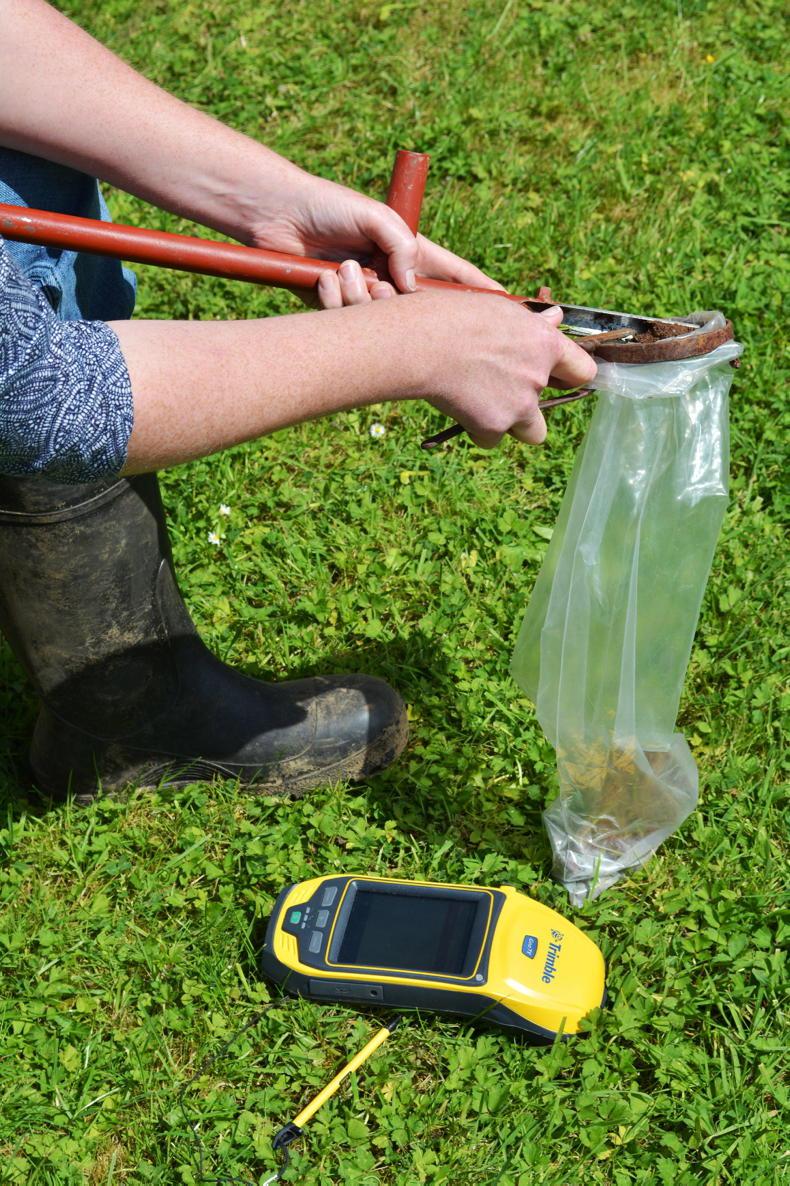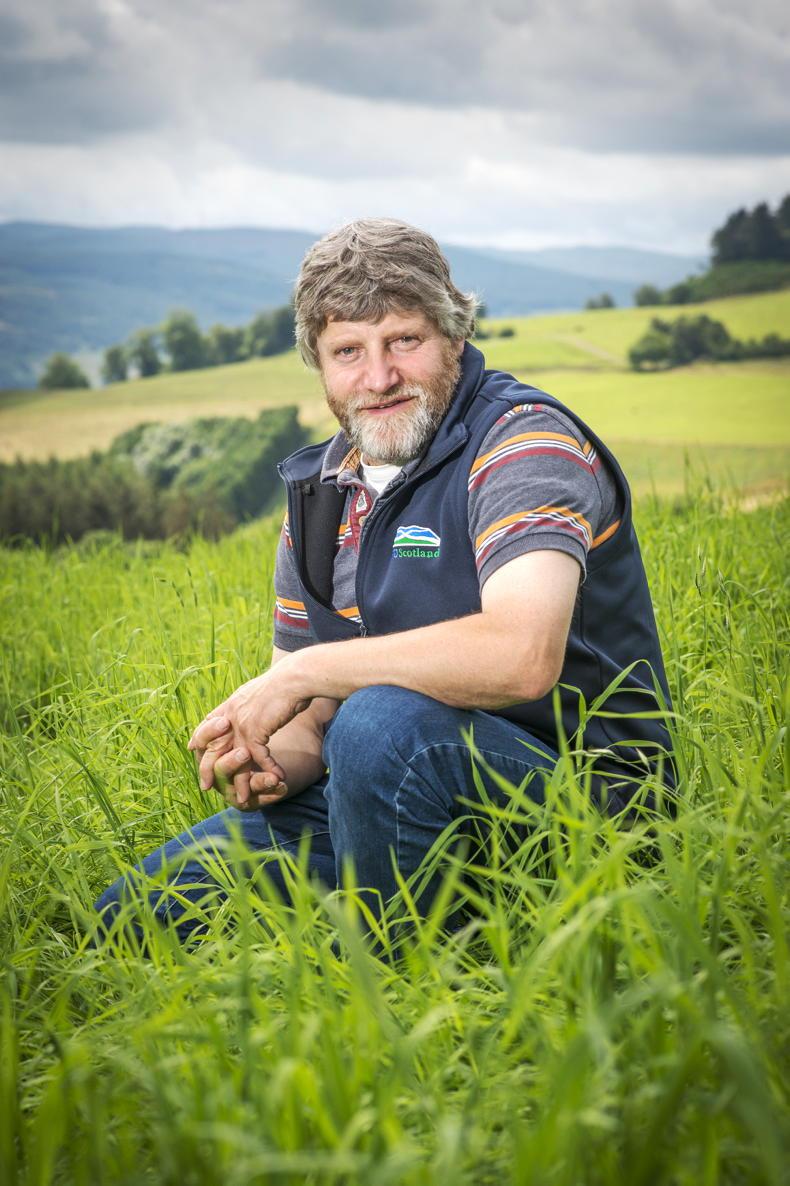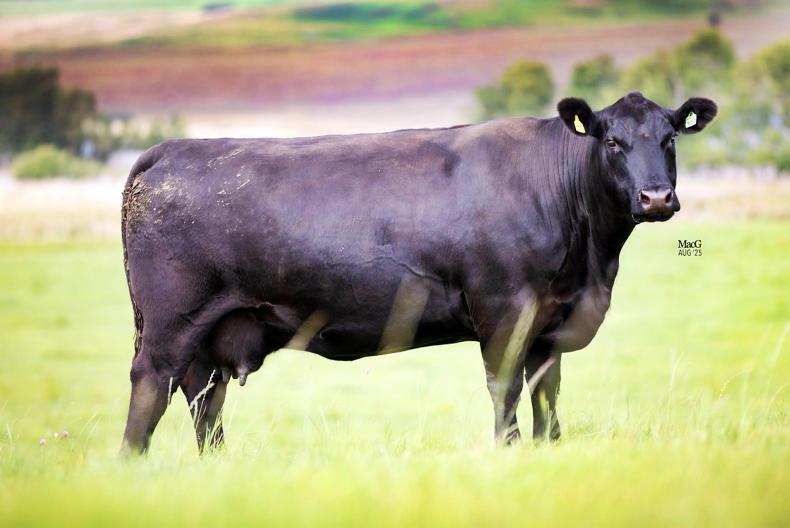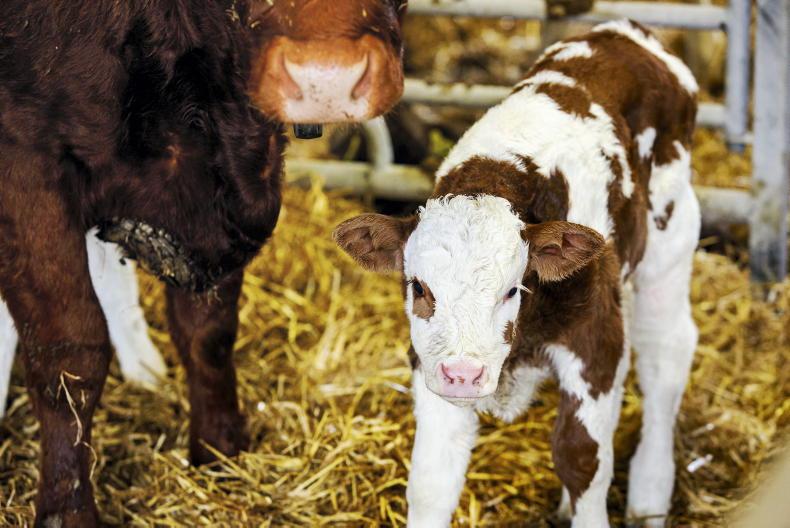Five-and-a-half years since the UK voted to leave the EU, there are still no firm details on the future of farm payments.
Farmers were left frustrated by the lack of detail in the Scottish Rural Affairs Minister Mairi Gougeon’s keynote speech at NFU Scotland annual conference.
Union members have been calling for clarity on how future farm payments will be delivered under increasingly challenging climate change targets for net zero emissions.
When pushed on a timetable for the introduction of the full replacement of the Common Agricultural Policy, Gougeon said that while there could be no substantial change to the “simplicity and stability” provision brought in the 2020 legislation before 2025, the next key stage will be drafting a new bill for the parliamentary process by 2023.
This led to many farmers criticising the slow pace of progress, including members of the Agricultural Reform Implementation Oversight Board (ARIOB), which was set up in 2021 to set out the framework for future rural policy.
£30/h for soil sampling
While there was no grand plan unveiled on how farming would contribute towards net zero, the minister did announce some initiatives and funds focused on climate change.

Farmers will be able to receive around £30/ha for soil sampling.
There is to be an allowance of around £30/ha for region one land to support soil testing and analysis, which includes assessing soil carbon. This will see a 200 acre farm receiving £2,430 for testing.
The scheme comes as part of the £21m National Testing Programme which is designed to set a baseline for emissions.
Slurry store grants
The SNP MSP also announced the Agricultural Transformation Funds to receive £5m for this year’s projects. The scheme which opens in April will only cover farmers wanting to buy low-emission slurry spreading equipment and slurry store covers. The focus is to reduce the impact of slurry and digestate on water quality and nitrates emissions. Farmers had been hoping for a wider range of options backed by a bigger cash pot.
NFUS president Martin Kennedy called the funding “massively inadequate”, adding: “Given the regulations we have right now with slurry storage issues, 10 farmers could spend £500,000 each to get their slurry stores up to spec and that would be the whole budget gone.”

Martin Kennedy NFUS president.
Previously the capital grants scheme spent £18m on similar outcomes so farmers fear this year’s much reduced pot will be spent quickly.

There is capital grant funding in Scotland for slurry covers and stores.
Government heads in the sand
The NFU Scotland president used his speech at the conference to increase the pressure on the Government to “take their head out of the sand” and called for them to listen hard and deliver meaningful, viable support for the industry.
In Kennedy’s maiden conference speech since his election in February last year, he made it clear that Scotland’s agricultural sector has never been under so much pressure. Farmers looking to plan their farm beyond three years currently do not know what rural support will be available to their business or the conditions attached.
Kennedy fully explained the challenges facing the sector, highlighting the crippling and escalating input costs, labour shortages, climate change, imbalanced supply chains as well as unscrutinised trade deals.
Poor decisions being made
To tackle these challenges, Kennedy explained the union is focusing its lobbying efforts over the next two years on eight strategic priorities: future support, rural economy, optimal land use, climate change, public engagement, effective conservation, fairer supply chains and better regulation.
New vet service
Minister Mairi Gougeon announced the creation of a new Scottish Veterinary Service (SVS) to take over the field animal health and welfare functions currently delivered by the Animal and Plant Health Agency in Scotland. The new SVS is to be developed during the current parliament, which ends in 2026.
While the SVS’s remit is still to be agreed, it is likely to include the delivery and enforcement of animal health and welfare and food safety.
Gougeon said the new service “will help us create opportunities for more young people in Scotland who want to pursue rewarding careers in veterinary, animal health and food safety services”
New monitor farms
The next round of monitor farms were announced with a five-year programme. The new programme will focus on detailed data collection and enhancing knowledge, skills and competence through industry buy-ins. The budget for the programme was not announced but it will be managed by Quality Meat Scotland (QMS) and AHDB Cereals and Oilseeds, with funding from the Scottish government. The announcement was warmly welcomed by the QMS chair Kate Rowell, who called it “absolutely fantastic news” on her Twitter page.
There was also a commitment for the development of a nationwide control strategy for Porcine Reproductive and Respiratory Syndrome (PRRS).
Agri Scot farmers of year
Saughland Farm awarded Sheep Farm of the Year
Saughland farm run by farm manager Peter Eccles and flock manager Owen Gray were crowned the sheep champions. The farm consists of 50ha of arable land, 240ha of grassland and 40ha of woodland and hedgerows. The unit runs a maternal composite flock of 1,500 ewes using Romney and Aberfield, with everything recorded from birth and 400 ewe lambs. A new pedigree Suffolk flock is being developed with the aim to produce an easy-lambing, vigorous flock without compromising carcase quality and growth using CT Scanning, Estimated Breeding Values (EBVs) and rigorous selection.
The lead assessor for the award, QMS Chair Kate Rowell, said: “Their use of rotational grazing, where they were adapting numbers and classes of stock in the same field to get the most out of it at varying times of year demonstrated their eye for making the most of what they have to improve their efficiency and productivity.”
Saughland Farm edged out finalists Swinside Townfoot, run by Peter and Vicki Hedley in Jedburgh, and Attonburn Farm run by Robert and Becca Rennie in Yetholm.
Drumbreddan Farm awarded Beef Farm of the Year
Lamont and Daniel Hair from Drumbreddan Farm in Ardwell near Stranraer were awarded the beef farm of the year. The father and son team run 360 cows split into three calving groups each of 120 with all progeny finished. At any time, there are 850 to 900 stock on the farm and all cows are dairy crossbred with Angus, Limousin, Hereford and the some British Blue.
For almost 20 years, the Hair family has worked on what they call their ‘20/10 system’ where three times during the year the bulls will be with the cows over a 50-day period. This provides calving periods of February/March, June/July and October/November which supports cashflow, better use of bulls, easier management of calf groups and better all year-round use of the finishing sheds.
The lead assessor for the award, QMS head of industry development Bruce McConachie, said: “The system itself is innovative and provides sustainability and simplicity, coupled with a close relationship with the processors and retailers they work with. They have a clear business model and a focus on cow health and fertility for longevity, with an eye on succession and the long-term vision for the business.”
Drumbreddan Farm were competing with Durie Farms, run by Douglas Christie in Fife, and Adziel run by Jim and Irene Fowlie based near Fraserburgh for the award.
Preston Hall awarded Arable Farm of the Year
Preston Hall in Midlothian, managed by Bill Gray, and owned by the Callander family, has been named Scottish Arable Farm of the Year. Gray has managed the farm at Preston Hall near Pathhead in Midlothian since 1996. He was commended for his attention to detail in his approach to soil management, the successful construction of a new grain store that has improved the farm’s grain marketing business and succession planning.
Preston Hall is a mixed arable farm of 650ha, predominantly oilseed rape, first and second winter wheat, spring barley, winter oats, and winter barley, plus some permanent pasture and woodland. The farm successfully balances the competing demands of crop production and financial stability while protecting the environment and enhancing wildlife.
Competition assessor John Weir from Lacesston Farm in Fife said: “What really stood out for me was the farm’s approach to succession planning. Bill has brought in a trainee manager and is taking the time to put him through the farming equivalent of a management training scheme so that he can take over running the farm business if he chooses to stay at Preston Hall. I don’t think anyone else in the industry is doing this and I am sure it will really pay off.”
There were two other finalists in the Arable Farm of the Year category – Milton of Mathers Farm run by Jim Reid and his family at St Cyrus and Tulloch Farms near Laurencekirk in Aberdeenshire managed by Iain Wilson.
Five-and-a-half years since the UK voted to leave the EU, there are still no firm details on the future of farm payments.
Farmers were left frustrated by the lack of detail in the Scottish Rural Affairs Minister Mairi Gougeon’s keynote speech at NFU Scotland annual conference.
Union members have been calling for clarity on how future farm payments will be delivered under increasingly challenging climate change targets for net zero emissions.
When pushed on a timetable for the introduction of the full replacement of the Common Agricultural Policy, Gougeon said that while there could be no substantial change to the “simplicity and stability” provision brought in the 2020 legislation before 2025, the next key stage will be drafting a new bill for the parliamentary process by 2023.
This led to many farmers criticising the slow pace of progress, including members of the Agricultural Reform Implementation Oversight Board (ARIOB), which was set up in 2021 to set out the framework for future rural policy.
£30/h for soil sampling
While there was no grand plan unveiled on how farming would contribute towards net zero, the minister did announce some initiatives and funds focused on climate change.

Farmers will be able to receive around £30/ha for soil sampling.
There is to be an allowance of around £30/ha for region one land to support soil testing and analysis, which includes assessing soil carbon. This will see a 200 acre farm receiving £2,430 for testing.
The scheme comes as part of the £21m National Testing Programme which is designed to set a baseline for emissions.
Slurry store grants
The SNP MSP also announced the Agricultural Transformation Funds to receive £5m for this year’s projects. The scheme which opens in April will only cover farmers wanting to buy low-emission slurry spreading equipment and slurry store covers. The focus is to reduce the impact of slurry and digestate on water quality and nitrates emissions. Farmers had been hoping for a wider range of options backed by a bigger cash pot.
NFUS president Martin Kennedy called the funding “massively inadequate”, adding: “Given the regulations we have right now with slurry storage issues, 10 farmers could spend £500,000 each to get their slurry stores up to spec and that would be the whole budget gone.”

Martin Kennedy NFUS president.
Previously the capital grants scheme spent £18m on similar outcomes so farmers fear this year’s much reduced pot will be spent quickly.

There is capital grant funding in Scotland for slurry covers and stores.
Government heads in the sand
The NFU Scotland president used his speech at the conference to increase the pressure on the Government to “take their head out of the sand” and called for them to listen hard and deliver meaningful, viable support for the industry.
In Kennedy’s maiden conference speech since his election in February last year, he made it clear that Scotland’s agricultural sector has never been under so much pressure. Farmers looking to plan their farm beyond three years currently do not know what rural support will be available to their business or the conditions attached.
Kennedy fully explained the challenges facing the sector, highlighting the crippling and escalating input costs, labour shortages, climate change, imbalanced supply chains as well as unscrutinised trade deals.
Poor decisions being made
To tackle these challenges, Kennedy explained the union is focusing its lobbying efforts over the next two years on eight strategic priorities: future support, rural economy, optimal land use, climate change, public engagement, effective conservation, fairer supply chains and better regulation.
New vet service
Minister Mairi Gougeon announced the creation of a new Scottish Veterinary Service (SVS) to take over the field animal health and welfare functions currently delivered by the Animal and Plant Health Agency in Scotland. The new SVS is to be developed during the current parliament, which ends in 2026.
While the SVS’s remit is still to be agreed, it is likely to include the delivery and enforcement of animal health and welfare and food safety.
Gougeon said the new service “will help us create opportunities for more young people in Scotland who want to pursue rewarding careers in veterinary, animal health and food safety services”
New monitor farms
The next round of monitor farms were announced with a five-year programme. The new programme will focus on detailed data collection and enhancing knowledge, skills and competence through industry buy-ins. The budget for the programme was not announced but it will be managed by Quality Meat Scotland (QMS) and AHDB Cereals and Oilseeds, with funding from the Scottish government. The announcement was warmly welcomed by the QMS chair Kate Rowell, who called it “absolutely fantastic news” on her Twitter page.
There was also a commitment for the development of a nationwide control strategy for Porcine Reproductive and Respiratory Syndrome (PRRS).
Agri Scot farmers of year
Saughland Farm awarded Sheep Farm of the Year
Saughland farm run by farm manager Peter Eccles and flock manager Owen Gray were crowned the sheep champions. The farm consists of 50ha of arable land, 240ha of grassland and 40ha of woodland and hedgerows. The unit runs a maternal composite flock of 1,500 ewes using Romney and Aberfield, with everything recorded from birth and 400 ewe lambs. A new pedigree Suffolk flock is being developed with the aim to produce an easy-lambing, vigorous flock without compromising carcase quality and growth using CT Scanning, Estimated Breeding Values (EBVs) and rigorous selection.
The lead assessor for the award, QMS Chair Kate Rowell, said: “Their use of rotational grazing, where they were adapting numbers and classes of stock in the same field to get the most out of it at varying times of year demonstrated their eye for making the most of what they have to improve their efficiency and productivity.”
Saughland Farm edged out finalists Swinside Townfoot, run by Peter and Vicki Hedley in Jedburgh, and Attonburn Farm run by Robert and Becca Rennie in Yetholm.
Drumbreddan Farm awarded Beef Farm of the Year
Lamont and Daniel Hair from Drumbreddan Farm in Ardwell near Stranraer were awarded the beef farm of the year. The father and son team run 360 cows split into three calving groups each of 120 with all progeny finished. At any time, there are 850 to 900 stock on the farm and all cows are dairy crossbred with Angus, Limousin, Hereford and the some British Blue.
For almost 20 years, the Hair family has worked on what they call their ‘20/10 system’ where three times during the year the bulls will be with the cows over a 50-day period. This provides calving periods of February/March, June/July and October/November which supports cashflow, better use of bulls, easier management of calf groups and better all year-round use of the finishing sheds.
The lead assessor for the award, QMS head of industry development Bruce McConachie, said: “The system itself is innovative and provides sustainability and simplicity, coupled with a close relationship with the processors and retailers they work with. They have a clear business model and a focus on cow health and fertility for longevity, with an eye on succession and the long-term vision for the business.”
Drumbreddan Farm were competing with Durie Farms, run by Douglas Christie in Fife, and Adziel run by Jim and Irene Fowlie based near Fraserburgh for the award.
Preston Hall awarded Arable Farm of the Year
Preston Hall in Midlothian, managed by Bill Gray, and owned by the Callander family, has been named Scottish Arable Farm of the Year. Gray has managed the farm at Preston Hall near Pathhead in Midlothian since 1996. He was commended for his attention to detail in his approach to soil management, the successful construction of a new grain store that has improved the farm’s grain marketing business and succession planning.
Preston Hall is a mixed arable farm of 650ha, predominantly oilseed rape, first and second winter wheat, spring barley, winter oats, and winter barley, plus some permanent pasture and woodland. The farm successfully balances the competing demands of crop production and financial stability while protecting the environment and enhancing wildlife.
Competition assessor John Weir from Lacesston Farm in Fife said: “What really stood out for me was the farm’s approach to succession planning. Bill has brought in a trainee manager and is taking the time to put him through the farming equivalent of a management training scheme so that he can take over running the farm business if he chooses to stay at Preston Hall. I don’t think anyone else in the industry is doing this and I am sure it will really pay off.”
There were two other finalists in the Arable Farm of the Year category – Milton of Mathers Farm run by Jim Reid and his family at St Cyrus and Tulloch Farms near Laurencekirk in Aberdeenshire managed by Iain Wilson.












SHARING OPTIONS